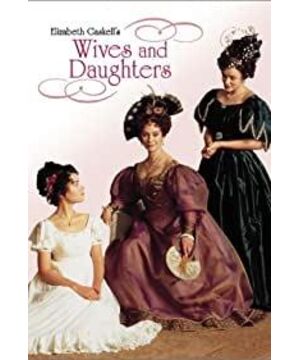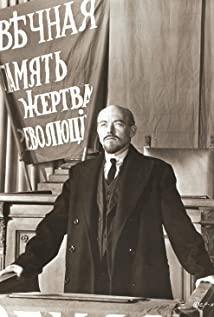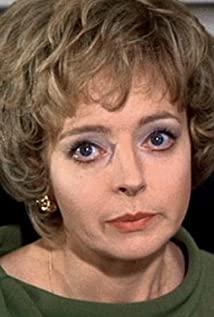If you watch a lot, you will inevitably accumulate a lot of experience. In fact, it is a prejudice. If you don’t clear it in time, it will flood, and it will come out from time to time to make trouble.
When did I start, I also joined the "cunning audience" group that Somerset Maugham called. As soon as there was an amiable and indifferent old gentleman in the detective novel, we cunning audiences immediately pointed out: the murderer is him! Seeing any gentle, pretty, unassuming heroine on the TV screen, the cunning audience also had a lightning-fast premonition that she would be devastated in this play—otherwise she wouldn't have to be so gentle and pretty ! This conclusion was not drawn by me, but by Mr. Xiaobo, which shows that our "cunning audience" is born in large numbers, and it is infinitely close to grasping the truth.
But my cunning experience recently took a toss on a BBC film of Splendid Beauty: I just saw a scroll of an English idyll unfold before my eyes, and I jumped to the conclusion in my heart that it wasn't Pride and Pride. Longborn in Prejudice! Since then, my thinking has basically been "locked" to this conclusion. The two proud sons of Mrs. Hamley have just appeared in the portrait. It was an embroidered pillow; then the second son, Roger, took great care of our heroine, Jasmine, and the image of Willoughby, the hypocrite in Sense and Sensibility, came to my mind again, causing me to be alarmed. When Molly and the two brothers first got together, Osborn was excited that Molly liked to read his poems, and Roger tepidly pointed out that she also liked to read his recommended entomology books, and I stood by and thought I did Get ready for a love triangle. The plot continued to develop, and soon a stepmother was introduced. There are many details enough to make me believe that this stepmother was sent by God to torture Little Jasmine, destroy her and her father's peaceful microcosm, and call the bleak wind of life and the bitter rain of fate. When Jasmine had heard enough of the rumors about how beautiful and talented her stepmother's daughter Cynthia was, the real person appeared, and the plot reached a climax. All the previous conjectures fell through. Clues to determine her spontaneity. And the mysterious man Preston, who she was secretly feared and involuntarily attracted to, was undoubtedly another Wickham, and Cynthia would definitely run away with him!
All my Goldbach conjectures fell to the ground following the force of gravity, smashed into a pulp, so embarrassing, from another point of view - so unhappy.
Prejudice is not all useless bondage. The series is adapted from the last novel "Wife and Daughter" by the famous nineteenth-century British novelist Lady Elizabeth Gaskell. This Dickensian woman has left her name in literary history because of her writing The portrayal of the characters deeply expresses the many changes and contradictions caused by the industrial revolution in the 19th century, as well as the impact and disintegration of the traditional social structure (concentrated in her masterpiece "North and South"). Stories like "Wife and Daughter" that take place in the countryside, although they are separated from the forefront of the urban industrial revolution, they always reveal the grand background of the great era from the changing gaps in daily life. Austen's "miniature sculpture on two inches of ivory" coincides with it. After reading Mrs. Gaskell's novels about life in a closed, peaceful and harmonious country town, I feel that she has won the true biography of Austen's sharpness. Abandoning the former meanness while adding its own witty and kind. Although it is a story that revolves around four or five families in the countryside, it does not appear thin at all, and supports Jane Austen's point of view expressed by Lizzy in "Pride and Prejudice": "But people themselves change so much, you Something new can always be seen in them."
Like Longborn, where the Bennets lived, He Linfu was a small place where Molly and her father, Mr. Gibson, a country doctor, depended on each other for life. Mr. Hamley's family is an ancient local family, and the family is in decline, which is why Mr. Hamley has high expectations and extreme strictness in the eldest son Osborn, who is known as a genius. Lord He Linfu's family are upstarts, representing the reshuffling of capital and wealth. They are high in power but their prestige has not yet been fully established. Of course, how can a typical English style painting be without the presence of old maids, who are generally loud but kind-hearted: Sisters Browning and Phoebe, friends of Molly's deceased mother, have always regarded Molly as her own. , and sometimes unavoidable interference, nervousness. In addition to the wonderful performance of the protagonist, the support of a good show is indispensable, and the supporting roles are always threaded, gags, and sometimes even the finishing touch. BBC dramas are best at the freehand brushwork of such characters, such as Aunt Philip, who loves to gossip in "Pride and Prejudice", In "Beautiful Lady", there is also a Mrs. Goodnow who takes on a similar "duty", in charge of selling camels in the six countries. Dramatic conflict usually begins with external factors: Claire, who is elegant in appearance and snobby at heart, becomes Mr. Gibson's follow-up and Molly's stepmother; her graceful and glamorous daughter Cynthia becomes Molly's sister; hound-like gloom Mr. Preston, who was watching Cynthia's mother and daughter, also moved to the town and became the land agent of Lord He Linfu. This is the beginning of the good show...
As the protagonist of the whole play, Jasmine was the owner until Cynthia appeared. The darling of her, she has so many advantages in her, no wonder everyone loves her. Throughout the development of the plot, Jasmine's performance is almost perfect, but such perfection is overshadowed by Cynthia's dazzling brilliance, and becomes so weak and inconspicuous, I don't know how Jasmine balances love that is neglected, shared, and plundered. Painful and generous by nature, she first accepted a strict stepmother, then an older sister who was always stealing the limelight, and finally accepted the cruel reality of her sweetheart Roger's feelings for her. The upbringing required by status is also a necessary disguise for self-esteem, and Jasmine has done a good job. She reminds me of many of Jane Austen's characters: the main theme is Lizzy's cleverness, candor, and assertiveness in Pride and Prejudice (of course, too much assertiveness will inevitably turn into prejudice); she has Jane's composure; Anne Elliott's forbearance in "Persuasion"; Emma's old-fashioned warmth in "Emma"; and the sensible and sacrificial spirit of the eldest daughter Elinor in "Sense and Sensibility".
Why did the Hamley brothers turn a blind eye to such a Jasmine? No, Osborn saw it to be precise. He had always seen it clearly. He was the only male who wasn't seduced by Cynthia's outward charm, but he already had a heart for him, and an unannounced marriage "connected" him and Jasmine. At the same time, the two of them were "separated". Jasmine could only be his most trusted little sister to share his worries, and he could only be the big brother who loves Jasmine the most, often sending comfort and encouragement to her when she was depressed and alone. It wasn't that Roger didn't see it. If Cynthia hadn't appeared, a strong light would have blinded his eyes, and the relationship between him and Jasmine would have grown secretly. The appearance of Cynthia, just like Cynthia itself, was a pot of violently reacting, extremely unstable solution, which disturbed the peace.
Using the camera to express the invisible, intangible, and subtle appearances has always been the strength of the BBC, and perhaps also the strength of British novels. Compared with European countries, this country's implicit and restrained national character can be described as anomalous, quite "oriental". In addition to the "Pride and Prejudice" that they had just met, Jasmine's admiration for Roger was obvious, and Roger felt something, otherwise he wouldn't have walked the seven miles just to send Jasmine one to frighten Sister Browning A large hive of hops. I can't blame Roger for thinking differently. Hesitation comes from the inside first. Jasmine always reminds me of Ji Ying in Pride and Prejudice. They are all decent women with rich emotions but calm personality and pleasant appearance. Regarding this, Lizzy and her relationship. My friend Charlotte still had an argument, and Charlotte tacitly held no hope for the good things between men and women: "If a woman uses this technique to cover up in front of her own beloved, If you don't let him know that she is interested in him, then she may not have the chance to win his favor; then, it will not help to keep everyone in the world in the dark. Most of the love between men and women will inevitably rely on the gratitude and retribution of both parties. It's hard to be a good thing when you let it go. The beginning of a relationship is casual - it is very natural for someone to have a good impression of someone; it is a pity that there is no other person and encouragement. There are very few people who are willing to fall in love without thinking about themselves. Nine times out of ten, women have a love in their heart and two parts on the surface. There is no problem, Bingley likes your sister; but your sister If you don't help him, maybe he likes her."
Charlotte's emotional sobriety has won her a husband like Collins, which is hard to resonate and appreciate, but we have to admit it makes sense—especially when unrelenting reality slaps wishful romance in the face. Had it not been for Mr. Darcy's great promotion later, Mr. Bingley's love for Jiying would have been very likely to die out. Roger is also, his love for Jasmine soon lost to Cynthia's fierce attack of "a love in my heart shows two points on the surface", and he was defeated.
And Cynthia, as Jasmine's "opposite" and opposite reference, represents the expansion limit of another emotional appeal. If Jasmine is a clear spring of giving, Cynthia is an abyss of taking. The dryness of lack of love since childhood made her extraordinarily greedy in the possessiveness of love. Almost instinctively, or unconsciously, she radiates charm anytime, anywhere, captures admiration, satisfies vanity, and falls into a vicious circle of asking for anything. Her snatch was unpremeditated, and the thrill of conquest quickly dissipated. The men's pursuit one after another was just her way of dispelling her inner insecurity and drinking poison to quench her thirst. Cynthia, who looks perfect on the outside, has a broken heart, faintly echoing indulgent roars, and is destined to live a life that is too much. The promise was not a guarantee for her, but a shackle. The moment it was made, there was an impulse to break it. No matter Preston, Roger, or Henderson, who finally married her, no one could really knock on the door of her heart. She's not cold-hearted either, but the growth experience of a single-parent family is overkill, and she always thinks that she won't be hurt if she doesn't open up. Cynthia goes astray and cannot turn back, forever losing her gift of love. Cynthia's inner world is unimaginable for a pure-hearted Jasmine, but she understands with her kind intuition, and only she can understand Cynthia when everything goes well, resist in vain with fear, and bravely undertake to dismantle the "time bomb" of Cynthia's life. The heavy responsibility, at the expense of his own reputation. The weak Jasmine was like a heroine at this time. Not only did Cynthia trust her, but also Osborne and the Hamleys. She accompanied so many people through difficult times in their lives. No wonder Gibson later learned the truth. The husband also expressed his surprise to his daughter: "What else is hidden in your small body that I don't know?"
Like Cynthia, I had a hunch from the very beginning that Roger and Cynthia's engagement was just a matter of time. If I couldn't even guess that, let alone the "cunning audience", even the "dumb audience" group might not be willing to accept me. . Roger is polite and good in character and study, but he is too face, and his father does not allow him to do anything. The only way to subdue the dangerous little beast can only be more dangerous than it, and it is normal for Cynthia to think that he is boring and clumsy. "Beneath the beautiful fur hides a cruel heart" - Cynthia's comments about Preston are equally suitable for herself, they are a match for each other. But Cynthia's rebellion was only half-hearted, and her vanity was ambiguous. She couldn't figure out what she really wanted, and she didn't have the courage to gamble. It's a question of how long the marriage haven will soothe her, and I hope I'm worrying.
Speaking of our Jasmine, she's literally a Victorian "Amelie" and there's no reason not to be happy. Only after having a daydream and the magic power of the illusion faded away, did Little Jasmine really grow up in Roger's eyes. Nothing can stop them now, this pair of immortals and relatives join hands in the world of the world with swords.
Searching, searching, going around, love will return to its place without any danger, and usher in a happy ending. It's just that there's no Osborn in this ending. At first I thought he was an embroidered pillow, and I was wrong; then I thought he was an apprentice, and I was wrong again. Like Osborn's paranoid father, I was not afraid to speculate on him with the worst malice. It turned out that he was a hapless man who could only make ends meet for the sake of love, and he also suffered from a terminal illness. The scene of Osborn's death is particularly moving: he walks and stops, as if the weight of emotion, responsibility, and illness add up, and the final straw crushes him. He fell slowly, the wind blew the trees, the beetles gently crawled over his cheeks... Joy, pain, nostalgia, regret, all the reluctance to give up were all put down, and a life left. The world is a bit lonely because of this, but apart from loved ones, who can hear the sad sigh between heaven and earth.
There are a few things worth mentioning about Cynthia's biological mother and Jasmine's stepmother, Claire. Such characters can be found everywhere in British novels, just like Foster's analysis of British characters, she is in line with the typical characters of middle-class prudence, snobbery, hypocrisy and selfishness. Like the Dashwoods in "Sense and Sensibility," she just suffers from a moral lung disease that slowly collapses without knowing what it is. At first, she was attentive to Osborn's eldest son status. She accidentally heard that he was terminally ill and would die soon, and her attitude immediately took a 180-degree turn, trying her best to promote Roger and Cynthia's hasty engagement. Roger went to Africa to investigate, and she regretted that Cynthia had to reject a better marriage proposal around her. In her eyes, marriage is a business for sale, and the one with the highest price wins. The question is what price is high enough? There are people outside the mountains and there are people outside the mountains. This is a business that is destined to take regret medicine. But in the final analysis, as a mother, she is dedicated to calculating her daughter's happiness, thinking that this is the greatest concern for her daughter, and its starting point is understandable. As Foster summed up: there is a little bit of evil in her body, but it is not real indifference. What is wrong is the means.
As for why Cynthia and Preston's private life-long past became a "time bomb", I have to introduce a few words about the social background at that time: although the Victorian era was gradually spreading, the authority of the upper class was still there, and the class and the As far as property is concerned, the boundaries between classes can be blurred, leaving only the so-called "upbringing" as the last line of defense, which proves your social status and must not be crossed. Zhu Hong, a well-known scholar of English literature in my country, specifically mentioned in his introduction to "Pride and Prejudice": "The concept of manners in English includes many things-behaviour, speech, courtesy, demeanor, and attitude toward others. In short, A comprehensive manifestation of a person's civilized upbringing." In the society at that time, "upbringing" played a more important role in life than the law. The Ban family sisters in "Pride and Prejudice", even if they want to see Mr. Bingley again, they can only wait for their father to visit the door first, and they can't show up when the other party returns, so they can only use the upstairs window to "see him clearly. She wears a blue coat and rides a dark horse." The admiration of men and women is a matter of privacy, but it must be nurtured in public to be considered decent. This is also the reason why people in that era were so fond of dances and tea parties, otherwise they would have no chance to get to know each other - although the personal information that such "public places" can provide is also very limited. The era of "Beautiful Beauty" was decades later than "Pride and Prejudice", but the social atmosphere basically continued. At the beginning of the film, Dr. Gibson's students fell in love with Jasmine, and when they wrote to her privately, Gibson intercepted them, and he reprimanded the students" This is not a gentleman's act" and sent his daughter to Mr. Hamley's house for temporary shelter. Roger fell in love with Cynthia. Although the relationship between the two families was extremely close, it was also rude to visit without the permission of the elders. Even if Mr. Gibson and Mr. Hamley were happy to see their children love each other, Roger's love had to be communicated to Molly's father. In contrast, Cynthia's behavior with Preston was too frivolous. Even if Preston had any friendship, he would not be able to win the approval of public opinion, because his behavior was quite sneaky in the eyes of the moral standards of the time. Cynthia's side is even more embarrassing. The private life behavior is fatal to the destruction of a lady. Only by concluding a marriage can a scandal be saved. But Cynthia later repented and didn't want to marry Preston, and she was just playing with fire. If the Ban family sisters in "Pride and Prejudice" have less chance of marrying a man of status just because of some unseemly relatives, then once Cynthia's own unseemly behavior is exposed, it may completely block her marriage. , the whole family will be shamed and disgraced. Luckily Cynthia has Jasmine like this A sister helped her to negotiate and mediate to save the day. And Jasmine had a powerful friend like Mrs. Harry Ye (she is the sister of Lord He Linfu), and her reputation was saved by blocking the gossip of the snob.
The social changes caused by the Industrial Revolution were an unavoidable reality in British novels from the eighteenth to nineteenth centuries. In fact, behind the love, love, marriage, and marriage, there are hidden accounts of income and expenditure. No wonder Marx praised a group of outstanding British novelists in his essay "The English Bourgeoisie", and in their works "revealed to the world more political and social truth than all professional politicians, political commentators and moralists put together. more." A prominent example is Jane Austen's "Pride and Prejudice". The social life of visiting, dancing, drinking tea, chatting, and laughing is only the surface. What supports all this is the competition for survival determined by the economic foundation. To put it bluntly, it is a number, naked The figures: Mr. Bennet's family owns a property worth £2,000 a year; Mrs. Bennet has a dowry of £4,000 when he marries him; each of the five ladies of the Ban family can get only four-year interest from their mother when they marry. cent of a thousand pounds deposit. Mr. Bingley had an inheritance of £100,000, and an annual income of £4,000 or £5,000; Miss Bingley had a dowry of £20,000. Mr Darcy has a fortune of £10,000 a year; his sister Georgiana has a dowry of £30,000. After Wickham and Lydia eloped, they had to extort at least ten thousand pounds from Darcy before they would enter the church. Darcy's cousin, Colonel Fitzwilliam, is not the eldest son and has no inheritance rights. If he gets married, the woman must bring him a dowry of at least 50,000 pounds... Capital's manipulation and definition of interpersonal relationships are cruel and ruthless, and love is what Marx said. The "veil of tenderness".
Mrs Gaskell's time was decades after Austin's, and her life in Manchester allowed her to witness the rapid development of the industrial economy, the amazing expansion of the city, and the decline of traditional country life. Beneath its serene and comfortable exterior, the countryside in the writings lurks danger. For example, although Mr. Hamley's family settled there 400 years earlier than He Linfu's family, he had land in his hands, but he couldn't even get the 100 pounds in cash needed to repair the Rong Canal. Don't be fooled by the thousands of pounds of wealth units in "Pride and Prejudice", in fact, in the first half of the nineteenth century Mrs. Gaskell lived, a mere £20 was enough to support a family of urban industrial workers for an entire year. According to Jane Eyre of the same era, the annual income of a tutor at that time was 30 pounds, and 100 pounds can be described as "a huge sum of money" in comparison. It seems that I have "sympathized" with the Bennet family for many years, and the income of 2,000 pounds a year can maintain a life in the country. It's just that the reference of the Bennet family is not the industrial workers in the city, or the governess of Miss Adele at Thornfield Manor, but Mr. Bingley and Mr. Darcy, who appear "shabby" and "distressed".
The biggest worry of the Ban family sisters is that they do not have a stable property to guarantee their future life, and they have no other way to save themselves except to get married (and they must marry as well as possible). In contrast, men do not have much freedom in marriage choices, which is inseparable from the long-standing "primogenous succession" in the UK. On the one hand, the "primogenous inheritance system" ensures that the concentration of wealth will not be lost, and on the other hand, it encourages the second son who does not have the right to inherit to start his own business. In a sense, it has obvious benefits for the steady accumulation of capital. But everything has two sides, and it also stifles the buds of many emotions, making money increasingly the dominant factor in marriage. A woman without a dowry desires to marry a rich man, and a second son who has no inheritance rights wants to marry a rich woman with a dowry. The money complements each other and the status must be equal. The weighted result increases the difficulty of rent-seeking in the marriage market, so England is rich in old maids, but also rich in governesses. For Jane Austen, a middle-class, well-educated woman without a dowry, if she misses out on marriage, she can only benefit from her elder brother's dependence, or go abroad to work as a tutor. After understanding these backgrounds, and then reading Mrs. Bennet in "Pride and Prejudice" - "the major event in her life was to marry her daughter", can you appreciate the bitterness behind Austin's wit, rather than just laughing at it.
Returning to "Beautiful Lady", the same is true for Osborn, the heir to the Hamley family. The only requirement his father has for his future wife is that he has a considerable background and a generous dowry, because he shoulders the heavy responsibility of rejuvenating the family. But he happened to marry a French maid and was penniless. As we all know, the conservative father remembered the fall of the British army in the Napoleonic Wars, and hated the French. He didn't even associate with the Liberal Lord He Linfu, who was in contact with the French, let alone accept a French daughter-in-law. Don't even think about it! It would not be an exaggeration to say that Osborn was crushed by despair. Fortunately, death has softened the prejudice, new life has facilitated the handshake of old and new ideas, and the reunion of his wife and children back to He Linfu is the best consolation for Osborn's spirit in the sky. Besides, Roger, as the second son, had a bleak future (which is why the snobbish Cynthia's mother initially poured cold water on his visit), but he achieved excellent grades and first won a first-class scholarship to Cambridge University (presumably that was a first-class scholarship). A lot of money, because Roger gave half of it to his brother Osborne, who said happily, enough to live on for a long time), and later he was appreciated by Mr. He Linfu, who loved natural science, and introduced him to France. As an academic authority, he was given the rare opportunity to lead a scientific expedition to Africa for two years. During his trip to Africa, Roger lost Cynthia's love but rediscovered the value of Jasmine. When he returned to England, he had the dual titles of scientist and explorer. The gains were not bad, and he also established a career foundation. In the eyes of everyone, The family background that had become Jasmine was no longer worthy of him. Fortunately, Mrs. Harriet, the outspoken, regards Jasmine as her confidant, cuts her teeth for her friend, and uses her influence to eliminate rumors and scandals that are unfavorable to Jasmine. Also difficult to get married. The financial account behind the high-sounding door will kill a pair of love.
Money, money, money, the long nagging about Brother Kong Fang even felt very coppery and pungent. But this is the objective necessity of social development, and it is the minimum knowledge reserve for us to "understand" a story. In this way, we can understand the behavioral choices of the characters in the play and distinguish what interests are at stake in polite speech. The conflict between Mr. Preston and Mr. Hamley, for example, represented the conflict between the emerging bourgeoisie and the conservative feudal landlords: Mr. Preston was a "pioneer" of professional managers, but had no status at that time . Rich people rely on his brain to help them manage their money and look down on him, and the biggest reason why Cynthia doesn't want to marry him is that he doesn't have a corresponding position in high society (it's obvious how much she struggled to resist his dangerous attraction) Pass). In my opinion, waiting for Cynthia to grow up but waiting to betray Preston, who was jealous and threatened with revenge, and finally chose to return the evidence that Cynthia was most afraid of-a few love letters to her, is undoubtedly quite candid. Gentleman behavior, even Jasmine said, "He really loves you deeply". Being affectionate, righteous, and capable, it does not help to improve his status. Preston can only accept the prejudice of the times, and cursed at Mr. Hamley's back: "What is the status before starting work, regardless of the cost, What's more, the workers are still being fired in early winter!" Another example is Mr. Gibson giving his stepdaughter Cynthia twenty pounds a year of pocket money, and Cynthia was going to visit her uncle's house in London. He gave her an extra ten pounds, even the always mean Cynthia. Mother couldn't help but exclaimed: "Dear, you are so generous!" Once we understand the average living standard of the society at that time and find the reference, we will heartily agree with Mother Cynthia: Yes, he is really So generous!
There is no thrilling legend of fate, no life-or-death struggle, "Beautiful Lady" tells the ups and downs of ordinary life. The superb performance of the actors portrays the characters in the play thoroughly, and the plot development is exciting. That's right, how come there are so many great evils, but they are all innocuous little faults in ordinary people:
we may all be prejudiced like Jasmine, timid and foolish in the face of love;
we may all be selfish and selfish like Claire
We can all be vain and heartless like Cynthia; we
can all be fascinated by beauty and love like Roger;
we can all pursue true love like Osborne, but can’t afford reality Life;
We could all spoil children like Mrs Hamley;
we could all be stern and stubborn like Mr Hamley, blocking all channels of communication with children;
we could all fail to distinguish love from possessiveness like Preston Desire;
……
The sun rises, the sun sets, and the face of life does not change much. Every era has its own best years.
View more about Wives and Daughters reviews











